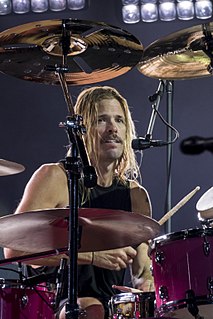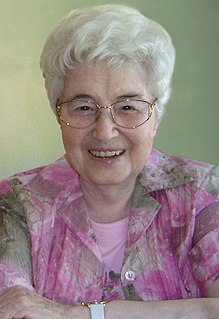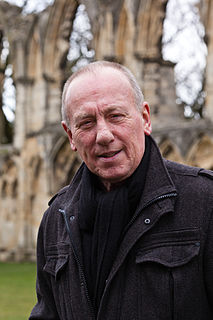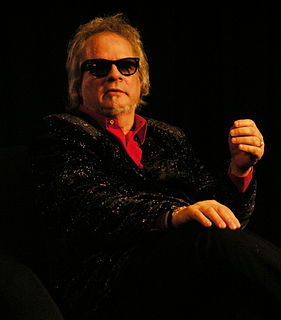A Quote by Grant Heslov
We usually break the story first. For instance, on The Monuments Men, and this one is more complicated because there's a lot of history, so before we started, we sat down with Robert Edsel, the author of the book, for about a week, and basically, he just gave us a lecture and went through everything. And then, I had a researcher, somebody who we had actually used on Argo.
Related Quotes
We rehearsed for a bit for an Indie film, which is kind of unusual, we had a week of rehearsals before we actually shot the films so we were able to really break down the script and kind of work through all of the improvisational things that he wanted to do, so he had a chance to really feel his way through before we actually shot it and I think that helped a lot.
You cannot begin to imagine the shock I had when I came down on the floor for the first time. First of all, there's this whole thing about playing sitcom comedy. I didn't want to do the sitcom thing, but I didn't know what else to do. I went slowly. We went through the week of rehearsal, then we got on the floor with the cameras, which I'm used to because of my experience in the old days. Then came camera day, with an audience, and it was stunning, enthralling, exciting and chaotic. I had never experienced anything like that before, as an actor. I was part minstrel, part actor.
Well that's basically how we launched Sherwood Pictures, and with our films, we sat down and we had a long list of specific things that we were praying for God to provide, and then we would just deal with all those things in prayer first, and then when we went out and began knocking on doors and calling, it was clear that God was going before us and providing the way and sending the resources.
When I was writing Dune there was no room in my mind for concerns about the book's success or failure. I was concerned only with the writing. Six years of research had preceded the day I sat down to put the story together, and the interweaving of the many plot layers I had planned required a degree of concentration I had never before experienced.
Fortunately, I come from an activist mother, so I didn't have to rely on the history books. The history books teach us nothing about the Underground Railroad aside from Harriet Tubman. So I knew more about it but, obviously, I had to dig deeper and expand my knowledge and do a lot of research once I took this project on. I had, like, a good two months to research before we started shooting, which isn't a lot, and I continued it throughout the five months of us shooting.
We discovered, like infants opening their eyes for the first time, that God's coming upon earth out of love for us had radically changed the world, because he had remained with us. As we walked about the city, or traveled to different cities and countries, it was not the beautiful and interesting things around us that attracted us. Not even Rome's wonderful monuments and precious relics seemed so important. Rather, what gave a sense of continuity to our journeying through the world for Jesus, was His Eucharistic presence in the tabernacles we found wherever we went.
I had just finished playing a doctor in Doctors' and I had had to tell somebody that they had cancer. In that moment I thought, He's doing what I did!' We sat down and he said, I'm sorry, Mr. Timothy, but I've got bad news.' I thought, Oh!' He told me that they had found cancerous cells, but not a lot.
I have a sign on my door. I look at it every single day of the week. The sign says, "Attitude is everything, so pick a good one." You need a very strong internal knowing. For instance, when I sat down to write the book The Power of Intention, I had a very strong internal knowing that I call thinking from the end.
I always knew from the beginning that this was the only way to write Then We Came To The End - that it had to be in first - person plural if it was going to illustrate how the individual becomes part of the collective. I had no interest in writing the book in a more conventional voice. It goes back to that fascination I had with telling a story in multiple ways. It was the only choice I gave myself, really - I said "This is it, pal. If you can't tell a story this way, you're going to have to abandon the book. Write it this way or give up."
Everything I did to get back, if it wasnt for my team, it was for my city. Thats one thing that I bought into from Day One. Im not just here in this city to play football, Im here to actually create real change in this city. If my effort can give you hope, faith or love, then so be it. Ill give everything I have, and today was about me giving everything that I had, showing people that no matter the circumstances that you may be going through, just push through it. If you can push through it, you will encourage somebody. Today, hopefully through what I did today, somebody was uplifted.
Well first of all I was nine weeks pregnant at the time and no one knew it. So it was - it had a whole other meaning for me not just because I had to let the dress out, you know, every few days before the actual day. But, you know, because that was the, you know, more important than anything else that was going on in my life. But in terms of actually winning I think I had been nominated four or five times before then. And every one of my co-stars had won up until that point.
It [the memoir "In The Body of the World"] wrote me. I joke about it, but this book was so unusual. It just started to come out. I really feel like it came straight from my body. I think it was both an expression of what I had gone through, but also it just felt like everything had come together in my body and it needed to tell that story.




































